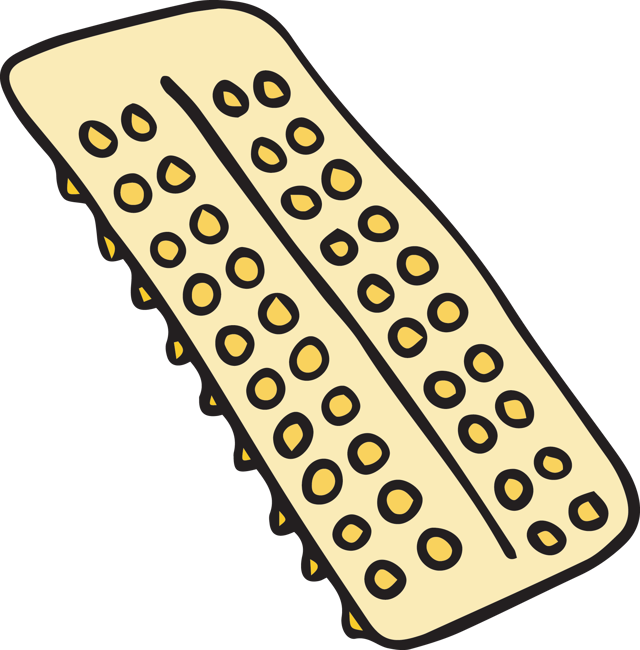Contraception & preventing unwanted pregnancy

Even though most types of contraception are used by women, it is the responsibility of both partners to learn about what is available and also to make sure that something is in place before they have sex.
It’s a good idea to visit a sexual health clinic or your GP to talk about how contraception can work with your individual lifestyle and needs. Finding the right contraception can be like trying to find the perfect pair of jeans- you may need to try a few on for size before you find the right one.
Most contraceptives are free on the NHS for young people, and available from different outlets such as your doctor or a local Sexual Health clinic. Click here to find out where you can go to talk about contraception.
Hormonal forms of contraception work by releasing hormones (progestogen and aestrogen) into the body to prevent pregnancy.
Some women use hormonal contraception even though they are not having sex. This is because the hormones used in contraception can be helpful with other things, such as by helping to reduce acne or to regulate periods. Speak to your doctor or sexual health practitioner if you have questions about how contraception can help with other health issues.
You may hear people talking about LARC, which stands for Long-Acting Reversible Contraception. These can be good options because they last for a long time, and because you don’t need to remember to use them every time you have sex, or to take them every day (like the pill).
Your GP or a sexual health practitioner will be able to talk to you about LARC and whether it could be a good choice for you.
Remember that contraception only protects against pregnancy. Using a condom every time you have sex is the only way to protect yourself against sexually transmitted infections, so make sure you have condoms available and that you use them every time.
Click on the links below to find out more about LARC:
- Vaginal ring (nuva ring)
- Contraceptive patch
- Contraceptive injection
- Contraceptive implant
- Intrauterine system (IUS) (mirena coil)
- Intra-uterine Device (IUD or copper coil)
Barrier forms of contraception work by physically preventing the sperm from ever coming into contact with an egg, therefore acting as a physical barrier to pregnancy. Additionally, condoms are the only way to protect yourself from sexually transmitted infections, so make sure you always use them, even if you or your partner are on other forms of contraception too.
Click on the links below to find out more about different types of barrier contraception:
- Condoms (external)
- Condoms (internal)
- Diaphragms & caps
Emergency Contraception (also known as the 'morning after pill') can be used by a woman after having unprotected sex in order to reduce the likelihood that she will become pregnant.
The most common form of emergency contraception is a pill which can be taken up to 3 days, or 72 hours, after having unprotected sex. We recommend that if you need to take the 72-hour pill, you get it as early as possible, as it is most effective if taken within 24 hours.
In Kent & Medway, many pharmacies provide this pill for free to young people aged 30 and under, while anyone aged 31 or older can buy it over the counter or visit their GP or a sexual health clinic for a free prescription. For a list of pharmacies which offer the free emergency contraception pill to those aged 30 and under, click here. We recommend calling in advance to make sure the service is still available.
In South West London, many pharmacies provide this pill for free to young people aged 24 and under, while anyone aged 25 or older can buy it over the counter or visit their GP or a sexual health clinic for a free prescription. For a list of pharmacies which offer the free emergency contraception pill to those aged 24 and under, click here. We recommend calling in advance to make sure the service is still available.
There are two other forms of emergency contraception which can be used up to 5 days, or 120 hours, after unprotected sex. First, there is a pill which you can get a prescription for from your GP or sexual health clinic which is effective for up to five days after sex. Alternatively, depending on where you are at in your monthly cycle, you can have a copper coil (IUD) fitted up to five days after sex. This will not only prevent pregnancy, but it will also stay in your womb for up to ten years as a form of long-term contraception.
If you’re interested in having a copper coil fitted as a form of emergency contraception, you should visit your local sexual health clinic.





